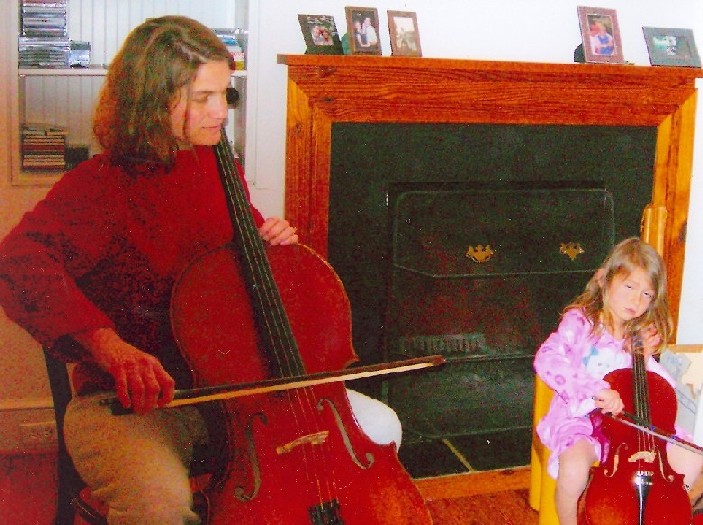SO YOUR CHILD IS GIFTED
The first moment of holding your infant in your arms is engraved in your memory permanently. Just thinking about that wonderful moment brings a smile to your lips and joy to your heart. Your feeling of joy, however, was unrelated to your child's intelligence, creativity, or talent. It was related only to that wonderful bonding that comes with holding your newborn.
 You were not thinking of your child's talent. Your
first wishes were for good health and normalcy. Your preschool gifted child, your school-age talented child, or your extremely intelligent teenager is
always a baby, child, or adolescent first. Giftedness is only a secondary description. When this order is reversed, children suffer from pressures to be
what they can't be—intellectual objects of their parents' creation, instead of unique human beings.
You were not thinking of your child's talent. Your
first wishes were for good health and normalcy. Your preschool gifted child, your school-age talented child, or your extremely intelligent teenager is
always a baby, child, or adolescent first. Giftedness is only a secondary description. When this order is reversed, children suffer from pressures to be
what they can't be—intellectual objects of their parents' creation, instead of unique human beings.
You definitely were not thinking of your child's talent. Your first wishes were for good health and normalcy. Your preschool gifted child, your school-aged talented child, or your extremely intelligent teenager is always a baby, child, or adolescent first. Giftedness is only a secondary description. When this order is reversed, children suffer from pressures to be what they can't be—intellectual objects of their parents' creation, instead of unique human beings.
Gifted children exhibit talent early. They may speak in whole sentences when other similar-age children know only a few words. Some observe environmental details that aren't even noticed by others. Their questions may reveal a depth of understanding atypical of preschoolers. They may construct complex puzzles or toys or take toys apart in a manner that indicates extraordinary spatial understanding. They may learn letters, numbers, colors, and shapes with speed and interest, come to adult-like mathematical conclusions, read spontaneously, or show extraordinary musical talent far beyond typical children. All of these characteristics indicate giftedness.
Enjoy and encourage your children's love of learning, but foster their play, responsibility, imagination, affection, and fun so that they can grow as whole, as well as gifted children.
ENHANCING LEARNING IN THE FAMILY
Parents can experience the joy of enhancing their children's learning in many shared ways beginning with encouraging a love of reading and including an appreciation of culture, the arts, the environment, exploration, science, government, and the world community. Your home provides the first learning laboratory, but be sure to explore your community resources. Art museums, parks, conservatories, museums of natural history, aquariums, observatories, nature centers, children's museums, theaters, and concert halls may be closer and less expensive than you realize.
Although schools invest the most time into teaching your children skills, parents truly are very important teachers. If you can avoid putting pressure on your children and recognize that overload can cause disinterest, your modeling of a love of life and learning will provide the very best of opportunities for your children.
SCHOOL IDENTIFICATION OF GIFTEDNESS
Your gifted children may have been identified for school programs to enhance and encourage their talents, or you may be confused because, indeed, one or more of your children have not been identified, despite your belief that they need special programming.
 Even if your children are gifted, your
children's school may not be providing for their types of giftedness. Schools and states differ in their approaches to identifying children for gifted
programming, and many do not even provide such programming. Furthermore, some schools may have programs that only provide for certain kinds of giftedness;
for example, they may only provide for high achievers and neglect those children who possess leadership, creative, and artistic abilities. Intellectual
giftedness is the most frequent type of giftedness that schools provide for, and even that may not be adequately provided for within your school district.
Even if your children are gifted, your
children's school may not be providing for their types of giftedness. Schools and states differ in their approaches to identifying children for gifted
programming, and many do not even provide such programming. Furthermore, some schools may have programs that only provide for certain kinds of giftedness;
for example, they may only provide for high achievers and neglect those children who possess leadership, creative, and artistic abilities. Intellectual
giftedness is the most frequent type of giftedness that schools provide for, and even that may not be adequately provided for within your school district.
Some school districts use only group IQ scores for identification of their students. Other schools may include creativity tests, student products, peer or parent nominations, and/or teacher recommendations. For parents, the identification process may seem quite confusing. Parents shouldn't hesitate to ask questions of school personnel. Schools will undoubtedly be happy to communicate their philosophies and selection criteria.
What is the law?
Public Law 100-297 (1988) provided schools with the most current national definition of giftedness. This definition was recommended in the 1993 federal report, "National Excellence: A Case for Developing America's Talent": The term "gifted and talented students" means children and youth who give evidence of high performance capability in areas such as intellectual, creative, artistic, or leadership capacity, or in specific academic fields, and who require services or activities not ordinarily provided by the school in order to fully develop such capabilities. (Public Law 100-297, sec. 4103. Definitions.) |
PARENT-SCHOOL COMMUNICATIONS
Most teachers become teachers because they want to teach children. They usually care about their students. Parent-teacher conflicts usually emerge because some teachers have different philosophies than some parents about how children should be taught. There are some special communication problems with regard to gifted children. Some teachers who love to teach children are not particularly sympathetic to the needs of gifted children. They may even regard the provision of more challenging assignments for gifted children as elitist and unfair to the other children in their classrooms. Furthermore, because most curricula are designed for average children, teachers may assume gifted students know much less than they actually do. Your efforts to describe your children's capabilities may only be met with the too-frequent assumption that you are putting pressure on your children. Also, teachers will undoubtedly remind you that there are 28 or 150 other students for which they are responsible. Such attitudes cause parents and teachers to feel very frustrated.
Parents search for communication methods to help them become advocates for their children. There is no foolproof way, but be prepared to be positive, patient, and persevering when communicating with schools. Although, encouraging your child's positive effort and behavior should be your first priority, if you continue to hear that a teacher is causing problems for your child, and if you have already tried to communicate positively with the teacher, report your concern to the school's principal. Absolutely do not tell your child of your report, or he may view it as a battle with his teacher and won't improve his efforts. Principals cannot do anything about problems unless parents share their observations with them, nor can you expect an immediate change. Do, however, take the responsibility of communicating respectfully.
 Consider how supportive you can
be to your son's or daughter’s educational accomplishments. Challenge them to show their teachers they are achievers and nice people.
Consider how supportive you can
be to your son's or daughter’s educational accomplishments. Challenge them to show their teachers they are achievers and nice people.
You may wonder why so much emphasis has been placed on positive school communication and advocacy for your children. Studies of underachieving gifted children show opposition between parents and schools to be a fairly typical pattern. Although it is certainly not the only cause for underachievement, it's easy for children who lack academic confidence to find scapegoats for their problems. Because schools sometimes don't provide appropriate programming for gifted children, it's also very easy for parents to become negative about education. Gifted children are much more likely to achieve in school if parents can communicate positively and respectfully with school personnel, but with gifted children, parents may need special patience and perseverance. Knowledge about the needs of gifted children is also always helpful.
Join your state association for parents of gifted children, and search the Web for the National Association for Gifted Children at nagc.org.
©2002 by Sylvia B. Rimm. All rights reserved. This publication, or parts thereof, may not be reproduced in any form without written permission of the author.
